Following up on John Freeman’s interview with comic collector extraordinaire Peter Hansen (read it here, with an accompanying interview over on YouTube here), I thought I’d just highlight some of the auction catalogues that were produced for the liquidation of comic creator, collector and author Denis Gifford‘s collection, back in 2001.
Hamer Auctions also published the two editions of the Hamer Comic Annual Guide by Martin Hamer, its aim to identify and value British annuals and comics.
Born in 1927, Gifford was a writer, broadcaster, journalist, comic artist and historian of film, comics, television and radio. In his lengthy career, he wrote and drew for British comics; wrote more than 50 books on the creators, performers, characters and history of popular media; devised, compiled and contributed to popular programmes for radio and television; and directed several short films.
Gifford was also a major comics collector, owning what was perhaps the largest collection of British comics in the world. He died in 2000, aged 72, and his collection was auctioned in 2001 by bookseller and auctioneer Martin Hamer.
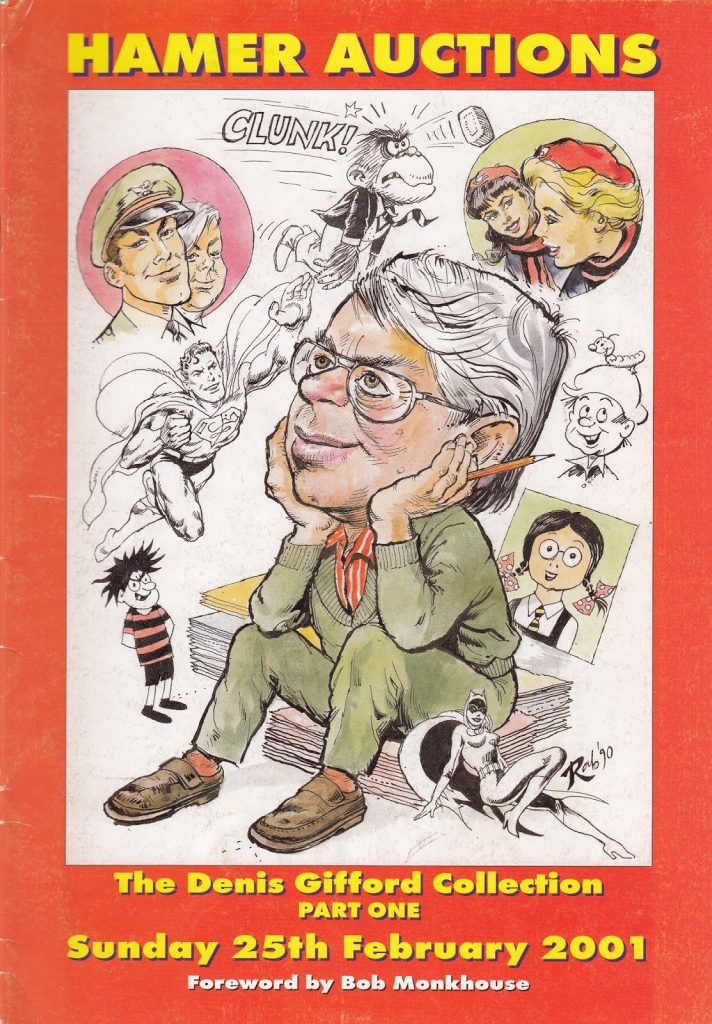
As you can see, the Hammer Auctions catalogues (these are the only ones I have – there were a dozen auctions in all) are all pretty similar looking! They’re A4 sized, with 20-28 pages with some interior pages in colour, typically showing the rarest items.
The prices realised from the prior auction are then included in the subsequent catalogue, thus allowing you to check to see what prices were eventually realised for the lots.
Catalogue one has lots 1-500, catalogue 2 has lots 501-100, catalogue 1001-1300 & catalogue 4 has lots of 1301-1750
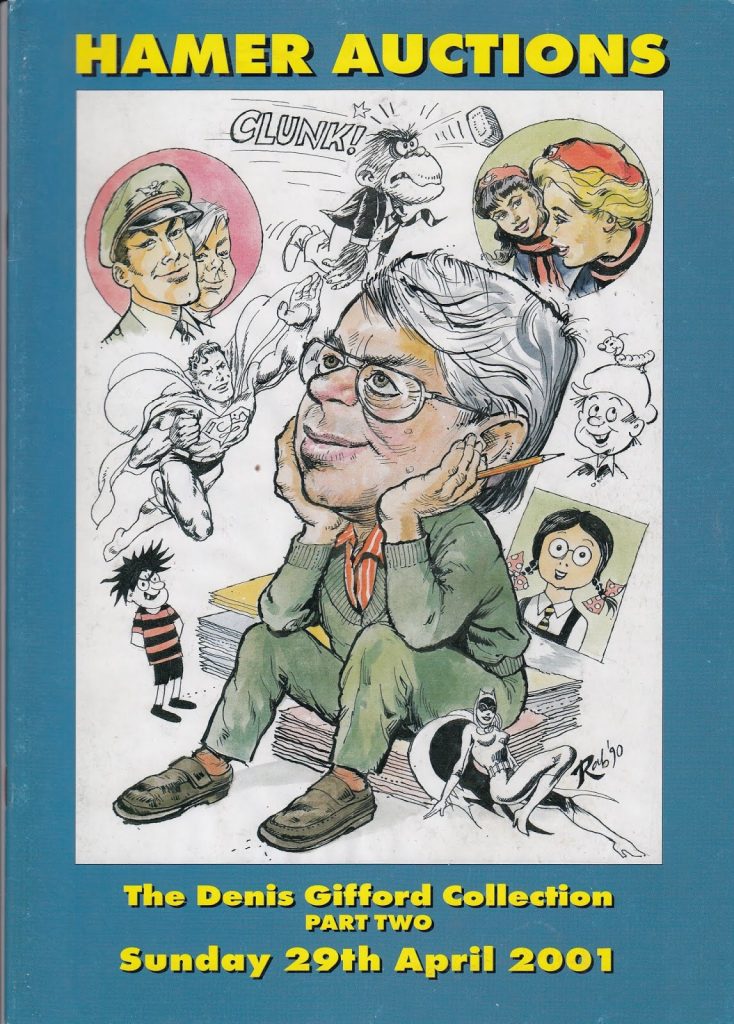
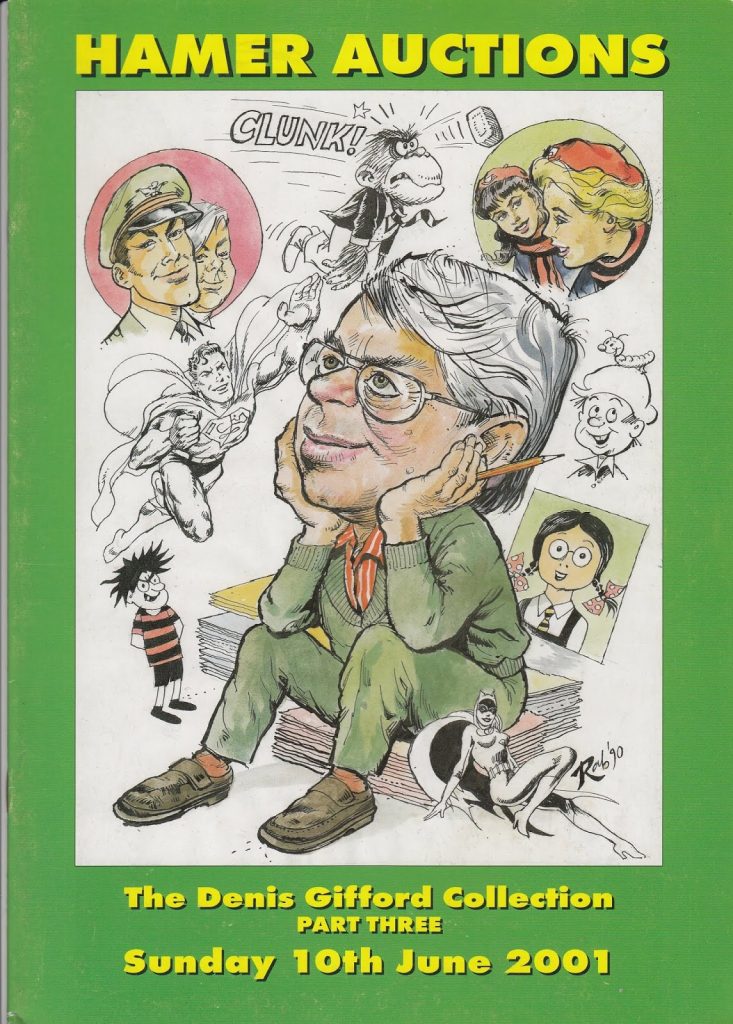
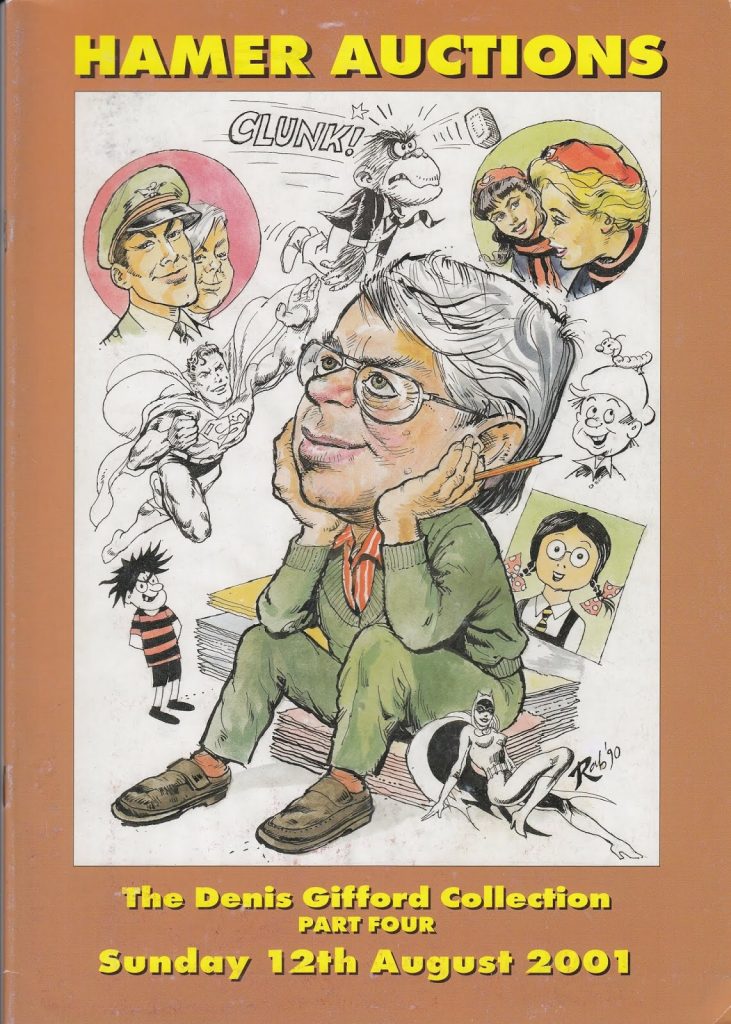 The lots are an amazing selection of books, comics, film, magazine and original comic art. I’d recommend picking them up – if you can find them, they seem very hard to track down!
The lots are an amazing selection of books, comics, film, magazine and original comic art. I’d recommend picking them up – if you can find them, they seem very hard to track down!
Hamer Auctions also published two editions the Hamer Comic Annual Guide by Martin Hamer, its aim to identify and value British annuals and comics. The Guide attempted to list just about every significant British annual and its comic counterpart, from Adventure to Zorro.
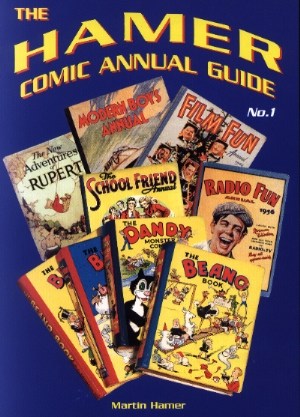 The first edition, published in 2000, ran to 167 pages, with 13 full colour plates identifying the covers of undated early British Annuals including the highly collectable Dandy, Beano and Rupert Bear.
The first edition, published in 2000, ran to 167 pages, with 13 full colour plates identifying the covers of undated early British Annuals including the highly collectable Dandy, Beano and Rupert Bear.
The second edition, published in 2002, a 50-page supplement to the first, presumably also takes into account the sales prices for Gifford’s collection. One Rupert Bear Book was sold by Hamer Auctions for £16,500 and a single issue of Ally Sloper’s Half-Holiday made £3,600.
• Read the Peter Hansen interview here, with an accompanying interview over on YouTube here
• Rupert the Bear expert Martin Hamer retired some years ago. His business interests were taken over by Martin Thatcher at GreenChase Books & Auctions, who list Rupert the Bear posters for sale on their web site – contact him here to check the availability of copies of the Hamer Comic Annual Guide
• This article was first posted on my Boys Adventure Comics Blog
Richard Sheaf is a longtime contributor to downthetubes and has written for numerous magazines about British comics.
Categories: Auctions, British Comics, downthetubes Comics News, downthetubes News, Other Worlds
 Beano and Dandy figures offered galore in latest Auction Centre sale
Beano and Dandy figures offered galore in latest Auction Centre sale  Kevin O’Neill original “Torquemada”art up for auction
Kevin O’Neill original “Torquemada”art up for auction  Vaults of the Book Palace auction offers 2000AD art treats galore
Vaults of the Book Palace auction offers 2000AD art treats galore  Sink your teeth into the latest Phil-Comics eBay auction!
Sink your teeth into the latest Phil-Comics eBay auction!
At the time of the sales without doubt Denis had the largest and broadest collection of British comics anywhere Richard. Interestingly a lot of those comics were focused on his interests as a comic historian, and his own private preferences. He did not have as many DC Thomson comics as IPC which is reflected by the lots for sale over the whole auction. He also preferred comics with lots of humour strips in them, particularly pre 1960 comics, as Denis himself was a competent humour artist who contributed to many comics over the years. Consequently he did not have a full comprehensive collection of adventure type comics, nor girls comics, nor juvenile comics beyond 1960’s. When compiling his tour de force The British Comic Catalogue, he used the services of the British Library and his contacts in the minor publishers world to flush out the material he didn’t have himself. As well as private collectors. Of course you have to add in his American comic collection as well. For Denis he didn’t particularly care about condition either and a number of his comics that did come up for auction were not in desirable condition as defined by most collector’s standards. Irrespective Denis was the father of British comic collecting and he passed on his passion to many people such as Steve Holland, The Clarks, and others.